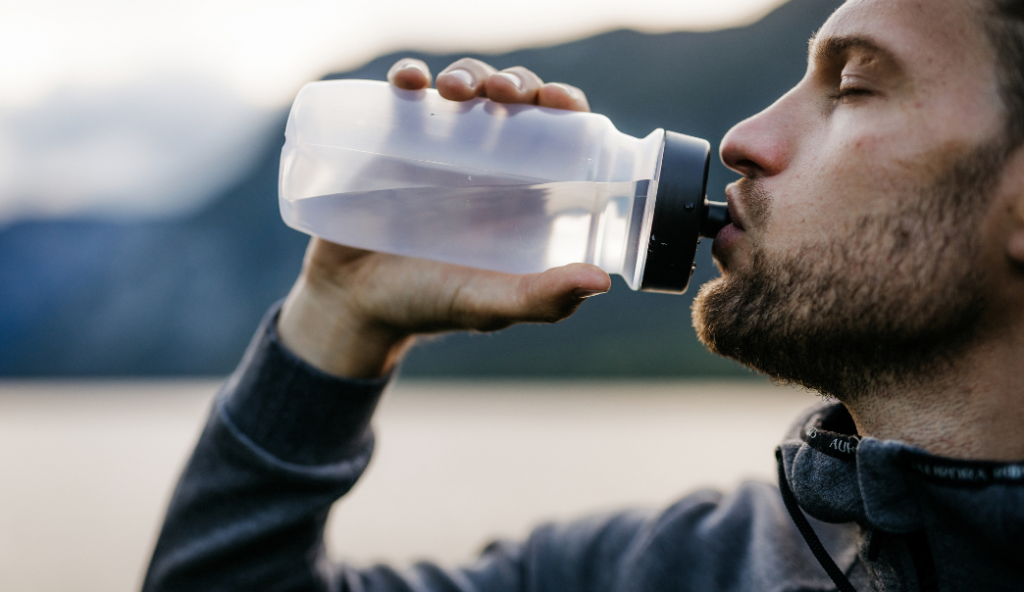In today’s fast-paced world, it is easy to overlook the importance of hydration in maintaining spinal health. Many people prioritize exercise, diet, and even posture but fail to realize that hydration is vital in supporting the spine. The spine, a complex structure of vertebrae, discs, and nerves, requires proper hydration to function optimally and maintain health. This article explores the role of Hydration in Spinal Health.
Understanding the Role of Hydration in Spinal Health
Firstly, let’s delve into why hydration is crucial for the spine. The discs within the spine act as a cushion between vertebrae, absorbing shock and providing flexibility. These intervertebral discs consist of a gel-like substance called the nucleus pulposus, surrounded by a tough, fibrous outer layer. The nucleus pulposus is primarily composed of water, making up a significant portion of each disc’s composition. Hydration is essential for maintaining the integrity and functionality of these discs.
Furthermore, the spine protects the spinal cord, a crucial central nervous system component. The spinal cord transmits messages between the brain and the body, controlling essential functions and movements. Proper hydration ensures the spinal cord remains well-nourished and adequately lubricated, allowing optimal communication between the brain and the rest of the body.
But what happens when the spine lacks the necessary hydration to function optimally? Let’s explore the impact of dehydration on spinal discs in more detail.
The Impact of Dehydration on Spinal Discs
Unfortunately, dehydration can take a toll on the health of spinal discs. When the body lacks adequate hydration, the discs lose their water content, causing them to dehydrate. This dehydration leads to a loss of height and changes in the disc’s structure, compromising its ability to distribute forces and absorb shock efficiently.
Imagine a sponge left out in the sun for too long. It becomes less pliable and more prone to breakage as it dries up. Similarly, dehydrated spinal discs become less flexible and more susceptible to injury. The lack of water content reduces their ability to act as effective shock absorbers, increasing the risk of herniated discs and chronic back pain.
Additionally, dehydrated discs are more prone to wear and tear over time. The loss of water content makes them less resilient, reducing their ability to withstand the various stresses and strains placed upon the spine during everyday activities. This can lead to premature disc degeneration, a condition that often results in long-term spinal health issues.
It’s important to note that maintaining proper hydration is not only about drinking enough water. Factors such as a balanced diet, regular exercise, and avoiding excessive alcohol and caffeine consumption also play a significant role in keeping the spine hydrated and healthy.
Understanding the spine’s hydration needs is crucial for maintaining its overall health and functionality. Staying adequately hydrated can help protect your spinal discs, support the spinal cord, and reduce the risk of developing debilitating back problems. So, remember to drink plenty of water, eat a nutritious diet, and care for your spine – the backbone of your body’s well-being.

Tips for Staying Hydrated to Support Spinal Health
Now that we understand the significance of hydration for spinal health, let’s explore some practical tips to ensure optimal hydration:
- Drink Ample Water: Make it a habit to drink at least eight glasses of water each day. Carry a water bottle with you to encourage regular hydration throughout the day.
- Monitor Your Urine: Pay attention to the color of your urine. Clear or pale yellow urine is a good indicator of proper hydration, while dark yellow urine suggests the need for more fluids.
- Include Hydrating Foods: Incorporate fruits and vegetables with high water content, such as watermelon, cucumbers, and strawberries, into your diet.
- Limit Caffeine and Alcohol: Both caffeine and alcohol can contribute to dehydration. If consumed, be sure to balance them with additional water intake.
Real-Life Benefits: Stories of Improved Spinal Health Through Hydration
Let’s explore some real-life stories of individuals who have experienced improved spinal health through prioritizing hydration:
1. Sarah: Sarah, a dedicated athlete, used to suffer from chronic lower back pain. After focusing on her hydration levels and ensuring she drank enough water before, during, and after her workouts, Sarah noticed a significant reduction in her pain. She attributed this improvement to the flexibility and cushioning provided by well-hydrated discs.
2. Robert: Robert, an office worker, spent extended periods sitting at his desk, often resulting in stiff and achy back muscles. By increasing his water intake and incorporating hydrating foods into his diet, Robert experienced improved spinal mobility and found relief from his discomfort.
These stories highlight the transformative power of hydration on spinal health. However, it’s important to note that the benefits of staying hydrated extend beyond just the spine. Proper hydration supports joint health, aids digestion, and promotes healthy skin.
Moreover, staying hydrated can positively impact mental clarity and cognitive function. Dehydration can lead to fatigue, difficulty concentrating, and even mood swings. Individuals can enhance their overall well-being and productivity by maintaining optimal hydration levels.
In conclusion, proper hydration is paramount to maintain optimal spinal health. By understanding the spine’s need for hydration and the consequences of dehydration on spinal discs, individuals can take proactive steps to support their spine’s well-being. Incorporating small yet significant lifestyle modifications, such as drinking ample water and consuming hydrating foods, can profoundly impact overall spinal health.
Remember, every drop of water counts when it comes to your spine! If you want to learn more about the role of hydration in spinal health and spine health in general, let’s chat!


